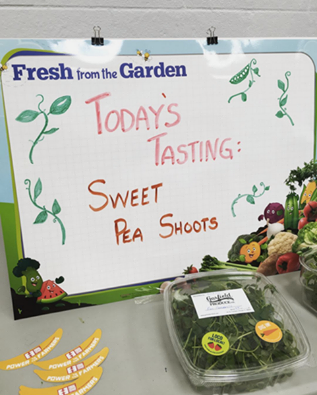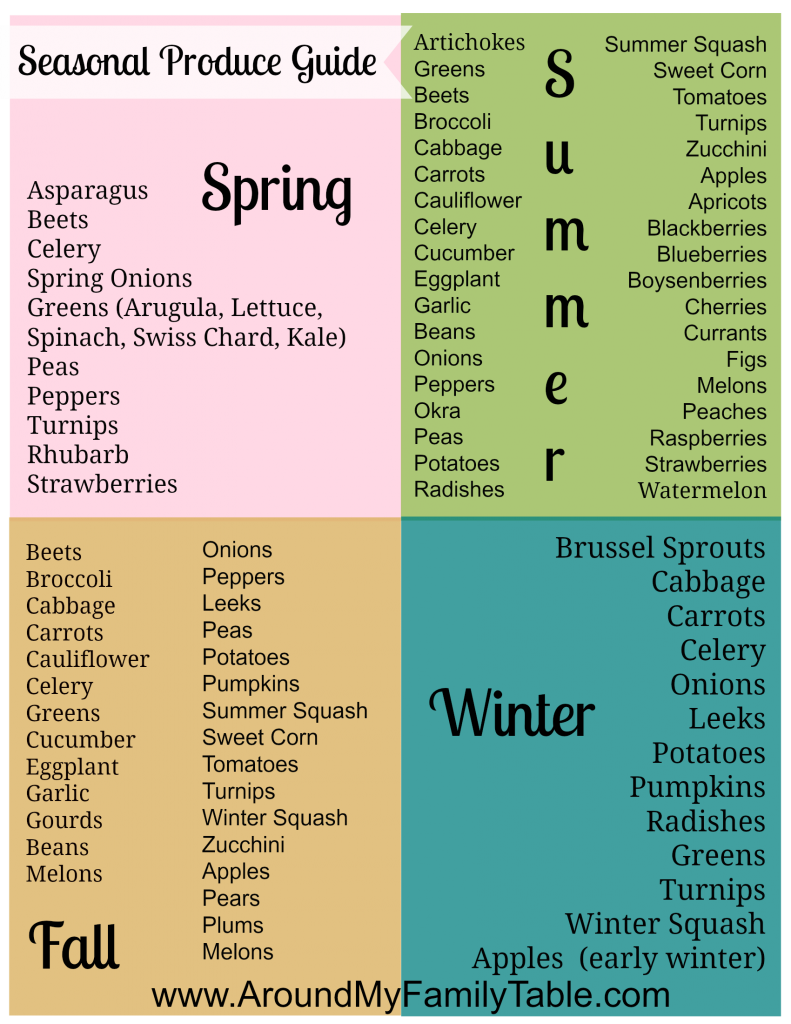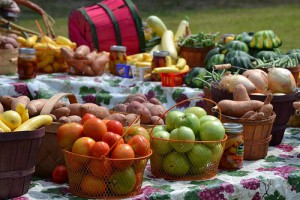Seven Generations Ahead Receives USDA Grant to Increase Local Foods in School Cafeterias
OAK PARK, Ill. – Seven Generations Ahead (SGA) is pleased to announce that they are one of 74 projects spanning 39 states receiving support this year through the U.S. Department of Agriculture’s (USDA) Farm to School Program, an effort to better connect school cafeterias and students with local farmers and ranchers. Aurora, Ill., area Kane County Health Department and SGA received a $85,767 implementation grant to impact 48,387 students total across three school districts, West Aurora School District 129 (17 schools/centers), East Aurora School District 131 (20 schools/centers), and Carpentersville School District 300 (29 schools).
“Farm to school programs work—for schools, for producers, and for communities,” said USDA Secretary Tom Vilsack. “By serving nutritious and locally grown foods, engaging students in hands-on lessons, and involving parents and community members, these programs provide children with a holistic experience that sets them up for a lifetime of healthy eating. With early results from our Farm to School Census indicating schools across the nation invested nearly $600 million in local products, farm to school also provides a significant and reliable market for local farmers and ranchers.”
SGA Executive Director Gary Cuneen said: “SGA is thrilled to receive this USDA Farm to School Program grant, and to be a part of the USDA’s efforts nationally to increase local, healthy food access and education in our nation’s schools. This project builds upon SGA’s 11-year farm to school program track record, and the Kane County Health Department’s leading edge work to build a local food hub that will link schools and institutions serving low-income children to Kane County and local area farmers.”
Together, SGA and Kane County will use implementation funds to build upon their track records and partnership to increase fresh, local food distribution, access and education within Kane County schools while building a sub-regional Kane County farm to school network as part of the new Illinois Farm to School Network (IFSN). The project will incorporate training and technical assistance targeting Illinois’ second largest city —Aurora — and a broader group of Kane County schools, which will focus on local food procurement, SGA’s curriculum modules and program activities, and school garden planning. The project will support school districts with classroom and cafeteria promotions of healthy eating and locally grown food, and will coordinate with the Great Lakes Farm to School Network to implement fruit and vegetable promotional events that coincide with Nation Farm to School Month in October.
Farm to school programs are one of the many tools and resources USDA offers to help schools successfully serve healthier meals. In the past three years since the bipartisan passage of the Healthy, Hunger-Free Kids Act of 2010, kids have eaten healthier breakfasts, lunches and snacks at school. Over 97 percent of schools report that they are successfully meeting the updated nutrition standards.
In addition to school meals, USDA’s Food and Nutrition Service administers several other nutrition programs, including the Supplemental Nutrition Assistance Program, the Special Supplemental Nutrition Program for Women, Infants and Children (Commonly known as WIC), and the Summer Food Service Program. Together, these programs comprise America’s nutrition safety net. For more information, visit www.fns.usda.gov.
Founded in 2001, Seven Generations Ahead’s (SGA) mission is to promote ecologically sustainable and healthy communities. SGA’s name is borrowed from the Native American principle, which states, “In every deliberation, we must consider the impact on the seventh generation.” Through community-wide sustainability planning and implementation, educational conferences and consulting, and school-based zero waste and farm to school programming and consulting, SGA is a catalyst for local solutions to global environmental issues. SGA’s work covers energy efficiency and renewable energy; transportation; community development; waste reduction; water conservation; green business development; local, sustainable food; open space and ecosystem enhancement; and education. SGA is the Illinois state lead agency for the National Farm to School program and facilitator of the Illinois Farm to School Network.
 We like to apply this same principal to students, although we aren’t trying to make a quick buck off of them! The Illinois Farm to School program has been running taste tests at schools in our Farm to School pilot area of Kane County throughout the winter and spring. Our samples are healthy, fresh and tasty. Before handing them out, we tell the students where they were grown and ask them if they can guess what part of the plant the food is. It’s a process that takes just a few minutes, but the students are much more willing to try something new when it comes with a cool story.
We like to apply this same principal to students, although we aren’t trying to make a quick buck off of them! The Illinois Farm to School program has been running taste tests at schools in our Farm to School pilot area of Kane County throughout the winter and spring. Our samples are healthy, fresh and tasty. Before handing them out, we tell the students where they were grown and ask them if they can guess what part of the plant the food is. It’s a process that takes just a few minutes, but the students are much more willing to try something new when it comes with a cool story.
 Join us on June 7th at Lincoln Land Community College, in Springfield, Illinois, to
Join us on June 7th at Lincoln Land Community College, in Springfield, Illinois, to
